Surround, bite, cut: new Mini AI Cup competition # 4
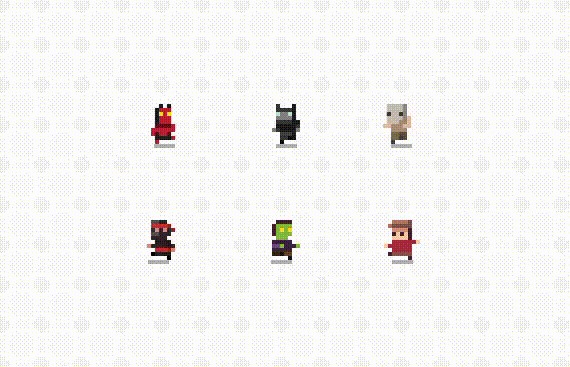
Hello! Most of us, experts in the IT field, love to play games - card, desktop, computer and others. Often it happens that the games do not bring any benefit, but I would like everything at once - pleasure, fun and knowledge. Especially for you, we try to invent "games for programmers" that combine all of the above. We invite you to get acquainted with them and invite you to take part in the Mini AI Cup # 4 artificial intelligence competition!
History of Mini AI Cups
In 2017, we launched a platform for holding artificial intelligence championships AI Cups , which became the answer to many requests from the IT community, who wanted to try out tasks similar to those found in the famous Russian AI Cup .
Briefly about the Russian AI Cup?
Russian AI Cup (RAIC) - the annual championship in writing artificial intelligence and bots, who fiercely fight in the virtual world instead of their owners. The competition has been held since 2012, more than 20,000 users have registered, who sent us more than 150,000 different solutions.
Not everyone can come close to loading a meaningful strategy with their programming and development skills. In addition, the participants demanded more interesting contests, and not once a year. In addition, for training they need to solve more problems. It is for these reasons that the AI Cups platform was opened.
In two years, 3000 people have registered on the portal, 600 of whom took part in three mini-competitions and sent their strategy options. The remaining users continue to prepare in the sandbox (training contests) for the next championship.
')
Past competitions
Mini AI Cup # 1 / Lifts
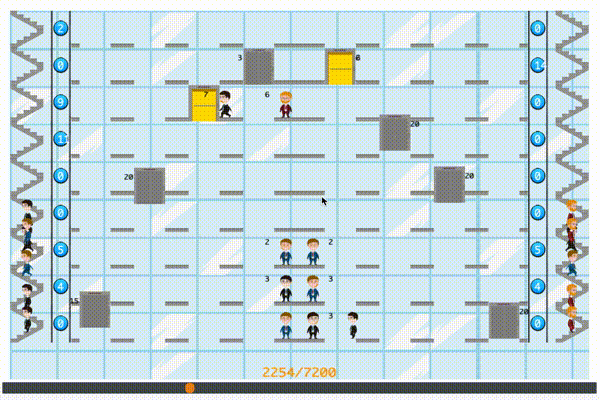
The first test championship Mini AI Cup was held in September 2017. Attended by 217 people. The essence of the task is the strategy of delivering passengers in an elevator, taking into account factors affecting the distribution algorithm. The winners were Anton Kozlovsky, Denis Utkin, Daniil Nikolenko.
Mini AI Cup # 2 / AgarIO
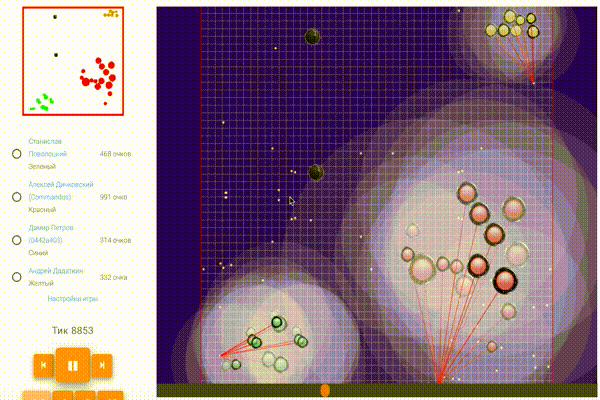
The second Mini AI cup began in February 2018. The task was to program a bot for a game similar to Agar.io. There were about 1,200 participants, more than 300 active players. The winners were Alexey Dichkovsky, Andrey Tokarev, Anton Kozlovsky.
Mini AI Cup # 3 / MadCars
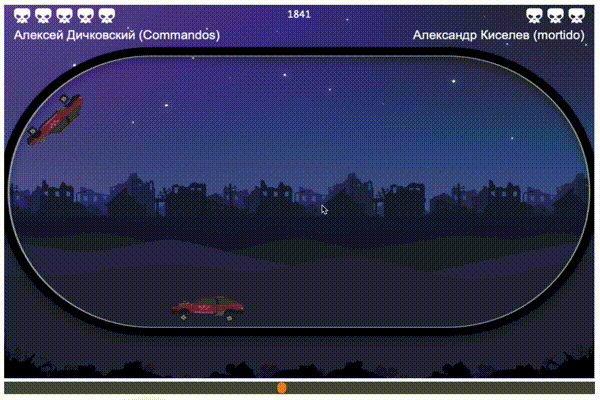
The championship began on August 30, 2018 and was developed based on the game Drive Ahead. Each player was given a car with a button. The task was to write a bot controlling the machine, the purpose of which is to push the button of the enemy faster than he does. Each player has 5 lives.
Winners: Alexey Dichkovsky, Anton Kozlovsky, Alexander Kiselev
New competition Mini AI Cup # 4 / PaperIO
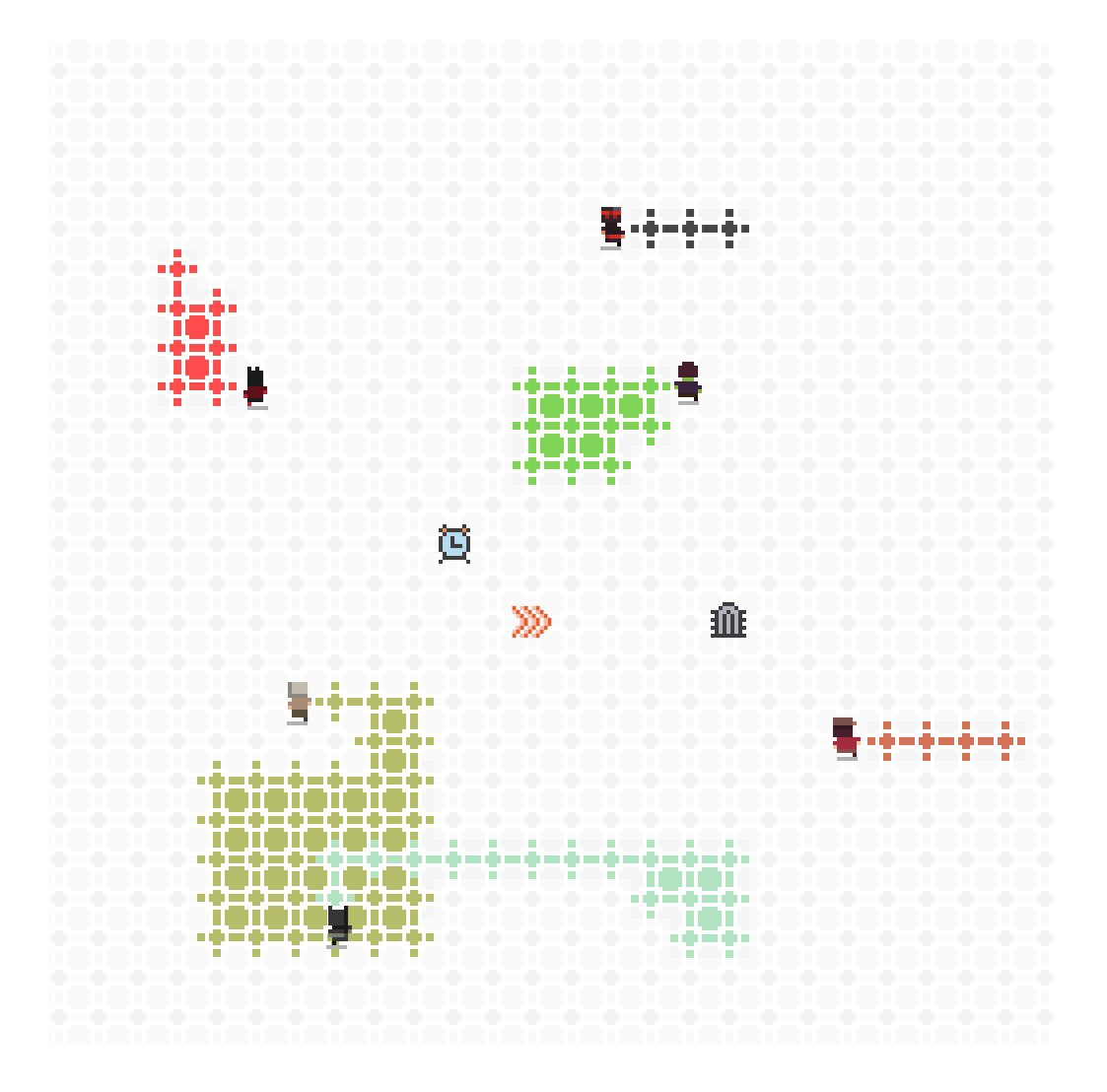
This time they decided to implement an analogue of Paper.io, specialized for writing bots. The mechanics are quite simple, there is no physics. There is only the playing field, players, rules and bonuses.
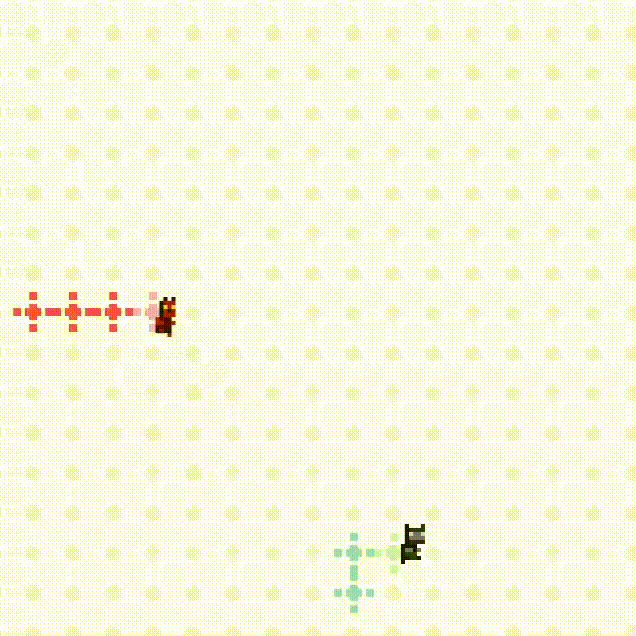
You will learn more about this on the launch day (if we tell now, then someone will write bots that will not be very fair to others).
Supported PL
Everything is standard here - solutions can be sent in any programming language from the list of supported: C ++ 11, C ++ 14, C ++ 17, C #, Java 1.8, Kotlin, Haskell, Go, Python 2.7, Python 3.6, PHP7, Node JS, Elixir, Rust, Scala.
For the convenience of the participants, as well as to reduce the peak loads on the launch system, we have prepared a program for local startup and debugging - Local Runner .
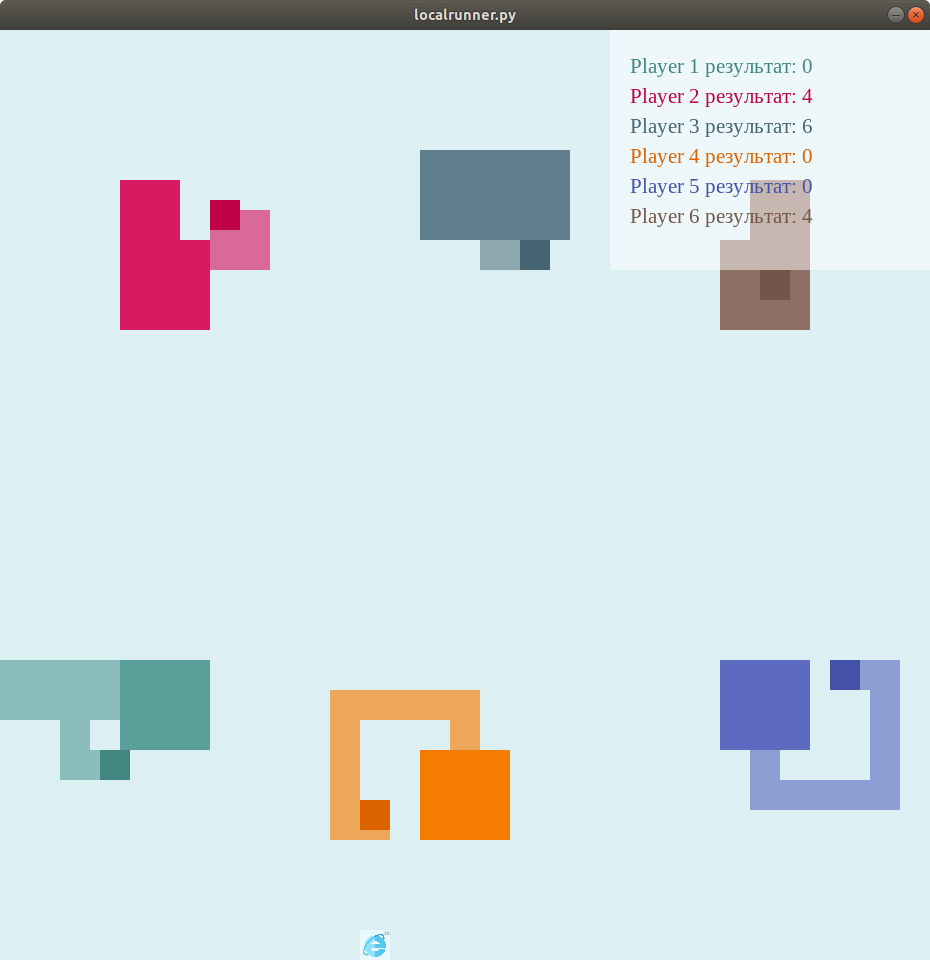
The utility is written in Python 3.6 using the Pyglet visualizer and is supplied as source code. Detailed instructions on how to configure and use can be found in the rules.
Solution architecture
The simplest solution in the Python 3 programming language will consist of a single main.py file. The client program initiates the session and runs this script at the beginning of the work. The client hides the work with the network and error handling, is an intermediary between the game mechanics and the decision of the participant. It sends JSON from the world to the standard input stream (stdin) and retrieves the response from the standard output stream (stdout) (for Python, this is sys.stdin and sys.stdout).
For correct operation, the solution must be run with parameters for I / O without a buffer (for Python, this is the -u flag when the interpreter is started).
The solution starts once and then works in an infinite loop. It is not necessary to process the stop; at the end of the game, dockerd will shut down all containers. Inside the loop, I / O processing is contained, JSON is processed, and the main handler is invoked.
Examples of strategies and quickstart will be published on launch day.
Schedule and gifts
So, we start on July 18 at 19:00, we finish on August 18. Three rounds will be held at these intervals, namely:
- Beta testing (does not affect the results) to fix possible bugs - 1 week.
- Rating games (2 weeks).
- Final games (1 week).
From rating games in the final will be 25% of participants. All participants who qualify for the final will receive traditional T-shirts.
In addition, the best participants will receive valuable gifts:
- First place - Apple MacBook Air;
- second and third place - Apple iPad;
- fourth, fifth, sixth places - Samsung Gear S3.
Community
To make it more interesting and more fun, join the community of participants in the telegraph (@aicups). We are already more than 900 people!
Good luck!
Useful
- A bit about physics in almost Agar IO on aicups.ru
- "Creating a bot on a recurrent neural network to participate in the Mini AI Cups"
- Creating a bot to participate in the AI mini cup 2018 based on a recurrent neural network
- Creating a bot for participation in the AI mini cup 2018 based on a recurrent neural network (part 2)
- Creating a bot to participate in the AI mini cup. GPU Experience
- Creating a bot to participate in the AI mini cup 2018 based on a recurrent neural network (part 3)
- Mini ai cup 2 or almost AgarIO - what could be done to win
- Launch Mini AI Cup # 3 Battle of machines in tight closed spaces
- Mini AI Cup # 3 Writing a top bot
Source: https://habr.com/ru/post/459232/
All Articles